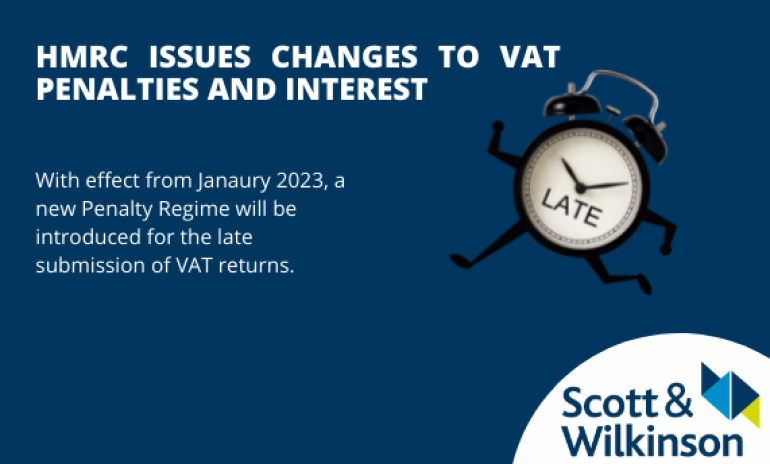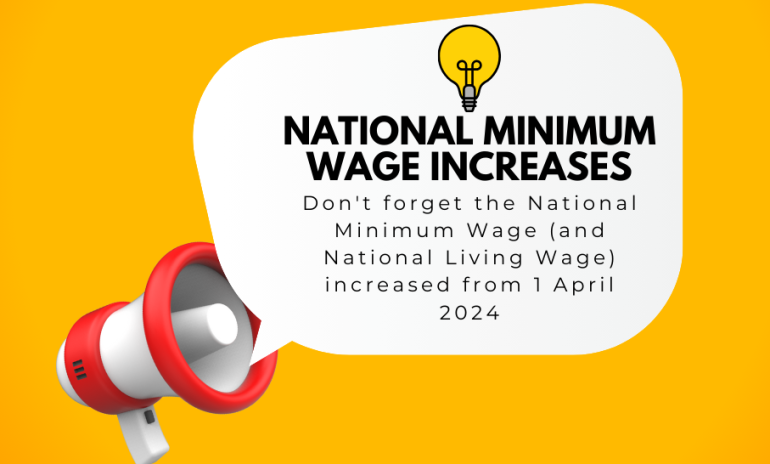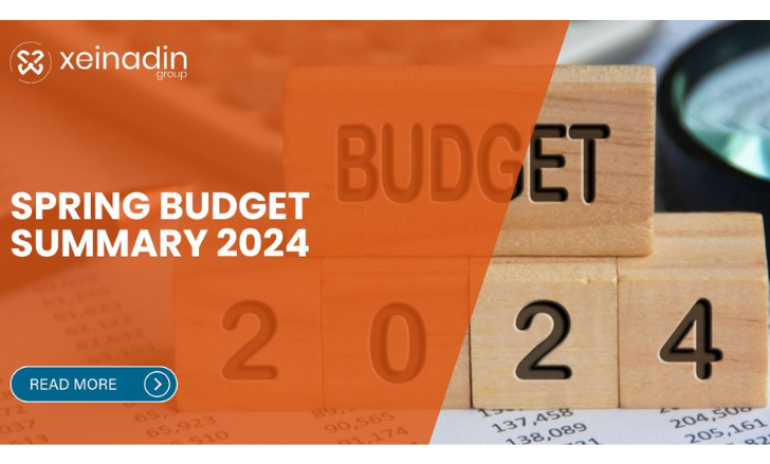Changes to VAT penalties and surcharges
Date: 26/05/22

The new Penalty Regime for VAT returns aims to bring penalties for late VAT submissions more closely in line with the existing penalties which apply to direct tax returns. Additionally, the new points system is designed to target frequent late filers rather than the occasional late filer.
The new regime was due to be introduced for VAT return periods beginning on or after 1 April 2022, this has now been deferred until January 2023 to enable HMRC extra time to make the necessary changes to their systems.
What are the current penalties?
Currently, there is no standalone penalty for late submission of a VAT return. Instead, the first time you file a late return you enter into a 12-month ‘surcharge period. This means if you file a return late again within these 12 months then the surcharge period is extended for another 12 months and you may pay a surcharge. No surcharge is due if turnover is less than £150,000 but if turnover exceeds this then a surcharge of 2% of the outstanding VAT is due (unless less than £400). Any subsequent defaults will result in an increasing surcharge regardless of turnover.
How does the New Penalty Regime work?
Every time there is a late submission of a VAT return HMRC will issue a single penalty point and once the business has exceeded a certain points threshold, a flat penalty of £200 will be imposed plus a further £200 penalty for each subsequent late submission, but the points total will not increase.
The points threshold will vary according to the VAT submission frequency:
|
Submission frequency |
Penalty threshold |
|
Annual |
2 points |
|
Quarterly |
4 points |
|
Monthly |
5 points |
Any nil or repayment VAT returns received late will also be subject to late submission penalty points.
Expiry of points
There are a couple of ways to reset penalty points back to zero:
- Where the penalty threshold has not been reached, points will have a lifetime of 2 years from the month after the month in which the failure occurred.
- Where the penalty threshold has been reached, the points total will only be reset to zero once a period of good compliance, dependent on submission frequency, has been completed and all submissions due within the previous 24 months have been received by HMRC.
During the period of compliance, all submission obligations must be met on time for the whole period.
|
Submission frequency |
Period of compliance |
|
Annual |
24 months |
|
Quarterly |
12 months |
|
Monthly |
6 months |
Failure to pay VAT on time
For failure to pay VAT liabilities on time, the following late payment penalties will apply:
Up to 15 days overdue
No penalty will be charged if the VAT owed is paid in full or a payment plan is agreed on or between days 1 and 15.
Between 16 and 30 days overdue
The first penalty will be issued, calculated at 2% on the VAT owed at day 15 if paid in full or a payment plan is agreed on or between days 16 and 30.
31 days or more overdue
The first penalty will be issued, calculated at 2% on the VAT owed at day 15 plus 2% on the VAT owed at day 30.
A second penalty will be issued calculated at a daily rate of 4% per year for the duration of the outstanding balance. This is calculated when the outstanding balance is paid in full or a payment plan is agreed.
VAT interest
There will also be changes to how VAT interest is calculated.
From 1 January 2023, HMRC will charge late payment interest from the day the VAT payment is overdue to the day the payment is made in full. Late payment interest will be calculated as the Bank of England base rate plus 2.5%.
The repayment supplement will be withdrawn from 1 January 2023.
For accounting periods starting on or after 1 January 2023, HMRC will pay repayment interest on any VAT that is owed. This will be calculated from the day after the due date or the date of submission (whichever is later) and until the day HMRC pays the repayment VAT amount due in full.
Repayment interest will be calculated as the Bank of England base rate minus 1%. The minimum rate of repayment interest will always be 0.5% even if the repayment interest calculation results in a lower percentage.

Author: Alan Taylor FCCA
A former pupil at Ripley St Thomas C of E High School in Lancaster, Alan joined Scott & Wilkinson directly from school in 1994 and qualified as an Accountant in 2001. Alan is responsible for a variety of clients operating in...
0 Comment
Add your Comment
We have the ability to edit and/or delete posts and comments. Links should be relevant to the topics. Please note all comments are subject to review before inclusion.














Nobody has commented yet. Why not add one?